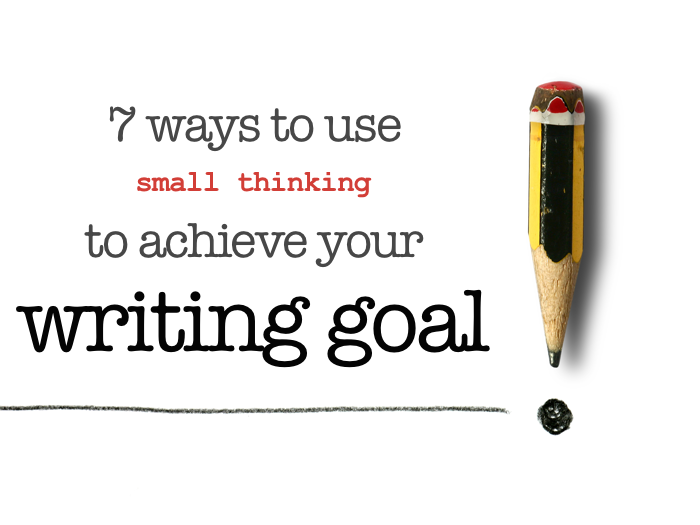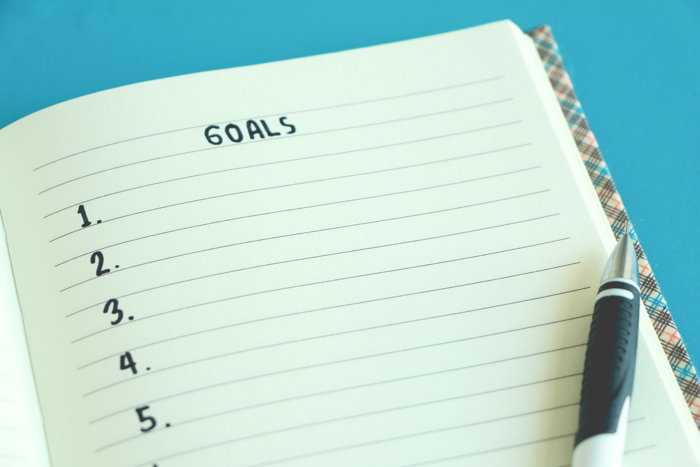How to unleash your creativity: 7 ways to be a more creative writer

Feeling stuck? Think you’re just not creative? Think again. Here’s how to get those ideas flowing.
Are you feeling creative? May 30th is National Creativity Day – a day to celebrate and encourage creativity. You might want to use the day as a push to do something creative, recommit to your works in progress, learn something new that will help you develop your craft, or take part in an activity that will inspire you and boost your creative energy. But what if you’re just not feeling creative at the moment? Here are 7 ways to unleash your creativity – and get those ideas flowing.
How to be a more creative writer
Can creativity be learned? Or is it innate? As humans, we are all creative beings. We’re born with the desire to create. That doesn’t mean we all want to be writers: creativity comes in many guises. But if you do want to be a writer – or if you’re a writer who’s feeling stuck – you need a way to unlock that creativity within you.
Sometimes the ideas flow, and inspiration comes quicker than we can write it down. And sometimes it really doesn’t. Are you staring at a blank sheet of paper or an empty screen? Maybe your writing is just feeling flat and uninspired at the moment. You’re going through the motions, forcing yourself to write some words each day – but you’re just not feeling it. You need some tools to help unleash your creativity – not just on National Creativity Day, but every day.
7 ways to unleash your creativity
If you’re feeling stuck or uninspired, try these tips to get your creativity back on track.
1. Overcome self-doubt
Have the confidence to call yourself a writer. We all struggle with imposter syndrome from time to time. Many new writers feel intimidated, plagued by doubt, even embarrassed about their creative work. “Who am I to call myself a writer?” you may think. But if you write, you are a writer. You don’t have to be published yet.
And you don’t need to constantly compare yourself to others. Even if you’re a hugely successful author, there will always be other writers out there who are ‘better’ or more successful than you. That’s OK. There’s room for everyone. You don’t need to live up to other writers, or emulate them. Just focus on your own unique way of doing things and communicating your ideas – and you will find an audience who values your work.
You are a unique individual. Not just among a current world population of eight billion people, but in the entire history of the roughly 117 billion people who have ever lived. It took you billions of years of evolution for you to get here. No one has had your particular experiences or has your way of expressing yourself. But plenty of people will be able to relate to your work. Others might have written on the same subject or on the same theme as you. But not in your way, or with your unique voice. Have confidence in your creativity.
There’s no ‘right’ way to write, either. Lots of people, courses and books will tell you what to do. But approach the creative process in a way that works for you. That may include extensive plotting, or just sitting down and writing what comes into your head. You might use mind maps, spreadsheets, index cards, whiteboards – or just a sheet of paper. Or maybe dictating is the best way for you to get your ideas down? Speech recognition software is everywhere these days, and a useful tool. Because I teach as well as write, I sometimes speak my ideas – and edit them later.
2. Don’t wait for inspiration to strike. (It won’t.)
Many of us think of creative geniuses being struck by that ‘Eureka!’ moment, having a brilliant idea then racing to complete it. But it doesn’t really work that way – at least, not for most people, most of the time. And if you wait for the perfect idea to strike – or until you feel ‘ready’ – honestly, you’ll never get anything done. So what should you do instead?
The best advice is just to get on with it. Like a lot of good advice, this is simple – but not easy. To overcome that creative inertia, write something every day. Even if (you think) it’s rubbish. Your first draft is supposed to be terrible anyway. Just get it down, so that you can get onto something better. Churn out your ‘vomit draft’. Then you’ll have something to work with. Writing is rewriting.
If it helps, try a freewriting practice such as morning pages, or use creative writing exercises and writing prompts. But write something – and aim for consistency, Even if it’s just for a few minutes a day. Even if you don’t feel creative. You don’t have to feel creative to create. Force yourself to sit in front of a blank page or screen until boredom takes over and you write something down. Or maybe your mind will wander and land on a new idea.
“Writing is like driving at night in the fog. You can only see as far as your headlights, but you can make the whole trip that way.” – E.L. Doctorow
Writing is something you get better at by doing. No one has to see all the stuff that didn’t work. But you may look back on it and find some gems that you can develop into something that does. Start before you feel ‘ready’. E.L. Doctorow said: “Writing is like driving at night in the fog. You can only see as far as your headlights, but you can make the whole trip that way.” Creativity requires tenacity. Stick with it.
3. Always carry a notebook
Or don’t. Val McDermid says, in her interview for Publishing Talk, that if an idea is good enough it’ll come back to you. But for those of us who feel the urge to capture ideas before they drift away – possibly forever – the smartphone is a marvellous invention. It’s a digital notebook that’s always with us – whether you use the Notes app, voice memos or Google Docs. I’ve become a fan of Google Docs in recent years, since whatever I write synchs everywhere, across all my devices. I write notes, ideas, to-do lists, chapters – and even these blog posts that way.
“I work on the principle that if it’s not interesting enough to remember, it’s not interesting enough for a reader to want to read about it.” – Val McDermid
Whether you use technology, or prefer an old-school physical notebook, it’s helpful to have some way to record those ideas, snippets of chapters, pleasing lines, jokes, bits of dialogue and so forth. I frequently find myself pausing at random moments during the day to jot down something that pops into my head. Maybe I’ll use it for something later. Maybe I won’t. But there’s more to note-taking than compensating for a poor memory.
A great benefit of notebook-carrying is the impact it has on your creativity. I find myself recording ideas more than writing whole paragraphs of prose on my phone. And it’s this collection – and generation – of ideas that’s key here. Creative people have a lot of ideas. Most don’t see the light of day. But if you want to unleash your creativity, you need a way of capturing them. If you’re feeling stuck, look back over your old notebooks or files. Some of the ideas you jotted down ages ago – and forgot about – may be just the inspiration you need.
4. Find your creative place
Set up your environment for success. Productivity expert Bec Evans talks about designing a distraction-free environment. Which is an excellent idea. But finding a space where you can be creative (and not just undistracted) is important too. And this may mean moving away from your desk. Here are some ideas to try:
- Go for a walk. Walking is great for getting a break and coming back to your project refreshed. But do you find you do your best thinking and have your best ideas when out walking? If so, you’re not alone. Researchers at Stanford University found that walking boosts creativity. They examined the creativity levels of people while they walked versus while they sat. And discovered that a person’s creative output increased by an average of 60% when walking. And getting out into nature has multiple benefits for physical and mental health. Author Liz Fenwick is a great advocate of the ‘plot walk’ – particularly in Cornwall, where she sets most of her books. A walk can help you unravel tricky plot problems – and give you inspiration for creating a setting too.
- Visit a café. Do you need total silence to work – or does the buzz of a busy environment help the creative process? When Helen Macdonald won the Costa Prize for H is For Hawk in 2014, she mentioned in an interview how appropriate it was – since she wrote a lot of it in her local Costa! And all that caffeine can get the ideas fizzing too.
- Go to the office. Most authors work from home. But, whether it’s to get out of a noisy household, or for a change of scene after a confining pandemic, an office can be a place of respite and creativity. It’s a rare author who can afford to rent an office and put in a 9-5 shift – though some do. Some are lucky enough to have a garden office or ‘writing shed’. But there are more affordable options. One is to use a co-working space – even if it’s on a few-days-per-month contract. Author Nicola May has lately taken to using one – and it inspired the plot of her new novel The Hub! Or work at your local library for free. Many have workstations.
- Move around. Try a standing desk. Not only is this good for your back, the change of physical position can make a difference to your creativity. Or write in a different room for a bit. You don’t always need to leave your house or flat to get a new perspective.
- Take a break. If you’re a binge-writer, blocking out some time and getting away on a writing retreat can do wonders for your productivity and creativity. It could be an organised retreat with other people. Or just do a DIY retreat: book a place to stay somewhere that will inspire you (but not distract you too much!) You may be surprised by how much creative work you get done in a week or two away.
Not all of these options are practical – or even physically possible – for everyone. But it’s more about a mindset shift. Do what you can to change your environment from time to time. It’ll change your outlook too. Everyone’s different – so pay attention to where you feel most creative – and try to put yourself in those environments more often.
5. Listen to music
Does music help you concentrate? Or is it a terrible distraction? Writers seem divided on this. Some need total silence, others need the background noise. I find it helpful – though instrumental music often works best for me when I’m really focused on writing, so I’m not distracted by song lyrics. Anything from jazz to classical to ambient electronica.
But, concentration aside, I also find that music is great for sparking ideas – and getting immersed into the creative world of a project. I remember hearing Quentin Tarantino describe – in more than one interview – how the first thing he does when starting a new film project is to dive into his record collection. These days, we’re more likely to listen to a Spotify playlist – or create or own (other music streaming services are available). Which is something I always do, for every project.
“Part of my process when I’m making a movie is to just dive into my record collection. What I’m looking for is the rhythm of the movie or the beat of the movie. In the case of, say, “Jackie Brown,” that’s ‘70s soul. I’m finding pieces, and that keeps inspiring me to make the movie, actually.” – Quentin Tarantino
Music may help spark ideas, memories and emotions from a particular time period. Writing a memoir set in the 1980s? Create a playlist of 80s music that takes you back to that period. You don’t even have to have been alive at the time. Writing historical fiction set in the 18th Century? Listen to music that your characters would have heard. It’s also about setting the right tone for your project – and getting in the right creative mood. Writing science fiction? Listen to cinematic tracks that inspire you. Romantic fiction? Listen to love songs. Something niche, quirky and genre-defying? Create your own weird, eclectic playlist!
6. Feed your creativity
Music is just one form of non-written art that you can consume. And you do need to consume culture if you want to produce it. You need creative inputs in order to generate a creative output. Yes, all writers need to be readers. But go beyond reading to music, painting, film, theatre, photography… If you’re feeling uninspired, uncreative and stuck, creative stimulation will help you unleash your creativity – and it can come from all sorts of places.
Visit an art gallery, go to a lecture or author talk, listen to a podcast, watch a film (especially if you write for the screen!), read a book for pure pleasure (rather than because it’s research for your current project), go to a concert. Even scrolling through images on social media can help. One of Instagram’s original brand values was ‘Inspire Creativity’. Find something that inspires you.
You may also find it useful to create in one of these different modalities too. If you feel stuck in your writing, moving to a different type of creativity can unlock something in you. Whether that’s playing the piano, painting, sketching, tapestry, knitting, making short films on your phone – whatever. Don’t know how to do any of those things? Take a course and feel inspired! Move away from the writing for a bit, and create something else. You’ll come back creatively refreshed.
Or if you really want to stick with the writing but feel stuck, write something else for a while. Have more than one project on the go. Switch from your novel to a nonfiction project or a screenplay. Write a blog post. Write a poem. Don’t keep endlessly starting new things as a way to avoid the thing you’re supposed to be working on, though – make sure you go back to it after your creative detour! You’ll return with new enthusiasm, see it with fresh eyes – and you’ll have made progress on something else too in the meantime.
7. Meditate
Alice Walker once said: “If you’re silent for a long time, people just arrive in your mind.” Maybe you just need a bit of silence, to let the ideas – and the characters – come. Meditation has all sorts of benefits, from reducing anxiety to increasing focus. And it can also help you unleash your creativity.
“If you’re silent for a long time, people just arrive in your mind.” – Alice Walker
There are plenty of apps out there to help you meditate – including Calm and Headspace. Some include specific guided meditations on creativity. But the key thing is to take some time out for yourself, and focus on your breathing for a while. Nor is it about emptying your mind or silencing your internal chatter. It’s more about observing your thoughts, without judgement. Some of those thoughts could be the spark for a new idea, book or character. Take some time out so you can hear them – and give yourself the space to create.
Unleash your creativity on the world
You can, of course, combine these techniques. For example, get outside and listen to inspiring music on your walk – and jot down any ideas that occur to you. That’s something I do all the time.
Creativity is not only about your own unique self-expression – it’s also about having the courage to share it with an audience. So find what works for you, go and express yourself – and enjoy the process. Unleash your creativity – and share it. The world is waiting for it.



